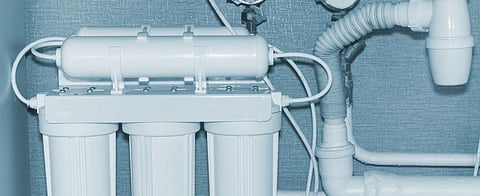

The Supreme Court has refused to stay the May 2019 order of the National Green Tribunal (NGT) that banned the use of reverse osmosis (RO) systems where drinking water supply had total dissolved solids (TDS) less than 500 mg per litre.
Hearing a petition filed by Water Quality India Association (WQIA), a body of RO companies on November 22, 2019, the court said that the Union Ministry of Environment, Forest and Climate Change (MoEF&CC) was already in consultation with it to implement the tribunal’s order. Therefore, whatever the association had to say, it should tell the ministry within ten days.
The WQIA had also presented a recent report released by the Bureau of India Standards (BIS) which said drinking water quality had not conformed to its standards in all eleven locations of Delhi from where it had collected samples.
The BIS report had stated that one or more of the drinking water samples had failed quality tests not just in Delhi, but also in Hyderabad, Bhubaneshwar, Ranchi, Raipur, Amravati and Shimla.
Moreover, none of the samples drawn from 13 state capitals — Chandigarh, Thiruvananthapuram, Patna, Bhopal, Guwahati, Bengaluru, Gandhinagar, Lucknow, Jammu, Jaipur, Dehradun, Chennai and Kolkata — complied with the requirements of the Indian Standard.
However, the court said all of this had to be presented to the MoEF&CC.
The NGT had passed the order on the basis of a joint report submitted by the National Environmental Engineering Research Institute (Neeri), the Central Pollution Control Board (CPCB) and Indian Institute of Technology, Delhi.
The report had accused the RO companies of running a ‘misinformation campaign’ by claiming the technology can remove not just dissolved solids but all other impurities.
The reality, the report said, is that RO is used worldwide only for desalination (treating dissolved solids).
The WQIA also argued in its petition before the apex court that it was not able to respond in the NGT about this multi-institutional report as it got the same only on the date of the hearing.
“This is not correct. The RO companies had got a chance to present their point of view when these institutions were preparing their report. The apex court was absolutely correct in not paying heed to these arguments and rather asking them to go back to the ministry,” the petitioner in the case, Sharad Tiwari, told Down To Earth (DTE).
Tiwari is the general secretary of a New Delhi-based non-profit, ‘Friends’.
Quoting the BIS report, the RO companies had pleaded in the Supreme Court that drinking water in most parts of India was contaminated with heavy metals like aluminum which their technology could remove. The NGT had quashed this contention in its order.
“It does not seem reliable,” Tiwari told DTE about the BIS report, especially its findings in Delhi.
“There have been many reports which say water supplied by the Delhi Jal Board has TDS count less than 200 mg/litre which is acceptable even according to standards of BIS. We are glad that the Supreme Court did not get swayed away by the BIS report,” he added.
Tiwari said he hoped the MoEF&CC would swiftly implement the NGT’s order as all decks have been cleared.
Besides being a waste of resources, the NGT order had also noted that the use of RO technology was leading to wastage of water. The order had said that most RO systems recovered only 20 per cent water after treatment and the rest was wasted.
It had directed the RO companies to tweak their designs so that at least 60 per cent water was recovered, which could gradually be increased to 70 per cent.